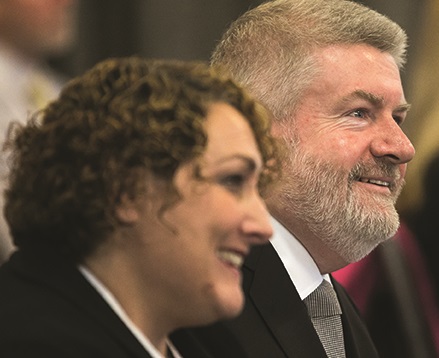- Details
The Federal Government is developing reforms to give consumers greater access and control over their data held by companies they do business with, like banks, energy companies and telcos. The Consumer Data Right will allow customers to transfer their data to different providers to see if those providers offer products that would be more suitable, at a better price.
For consumers, greater use and control of their data could provide significant benefits through helping them to find services they need at reduced prices.
In this consultation, The Treasury is asking for comments on the draft legislation that will underpin the consumer data right, before the legislation is introduced into Federal Parliament.
Read more: Treasury Amendment (Consumer Data Right) Bill 2018 Consultation
- Details
 In mid-August NBN Co announced changes to wholesale prices charged to retail service providers (RSPs) e.g. Telstra, Optus, and others for fixed wireless services. We’ve taken a close look at what this is likely to mean for consumers, and this is where we’ve landed.
In mid-August NBN Co announced changes to wholesale prices charged to retail service providers (RSPs) e.g. Telstra, Optus, and others for fixed wireless services. We’ve taken a close look at what this is likely to mean for consumers, and this is where we’ve landed.
ACCAN has concerns that the proposed changes to pricing for fixed wireless will result in a material disadvantage to those consumers on low incomes that live in regional areas where nbn services are provided by fixed wireless towers. In particular, the movement to uniform prices will result in consumers currently accessing more affordable, albeit slower NBN fixed wireless offerings, being priced out of the market.
These changes follow similar changes in the way that fixed line services have been priced, and bring the wholesale pricing of fixed wireless services and fixed line services into alignment. ACCAN’s concerns regarding the changes to wholesale fixed line services can be seen here.
Read more: What do the NBN’s fixed wireless pricing changes mean for consumers?
Write comment (0 Comments)- Details
 On the 12th and 13th September 2018, ACCAN held our annual conference - ACCANect. Revolving around the theme of ‘Confidence in the Connected World’, attendees were treated to two days full of informative talks and discussion panels from the telco industry, government bodies and academics.
On the 12th and 13th September 2018, ACCAN held our annual conference - ACCANect. Revolving around the theme of ‘Confidence in the Connected World’, attendees were treated to two days full of informative talks and discussion panels from the telco industry, government bodies and academics.
Mark Pesce, inventor, author, educator and broadcaster kicked off ACCANect 2018 by reflecting on the progress that Australia has made in the telecommunications industry and predicting what is to come. From the impending arrival of 8K television to the incorporation of hologram technology into our everyday lives, Mark emphasised the need for industries, governments and consumers to think about a future that is going to be more heavily reliant on communications infrastructure than we can imagine.
Read more: ACCANect 2018 - Conference Recap
Write comment (0 Comments)- Details
 In 2017, Google and ACCAN once again partnered to offer a paid internship to a recent graduate who wished to explore an emerging communications consumer issue.
In 2017, Google and ACCAN once again partnered to offer a paid internship to a recent graduate who wished to explore an emerging communications consumer issue.
After submitting a brief proposal which outlined her desired research project, recent law and media graduate Jelena Ardalic was selected as the winner of the internship. Ardalic’s report, ‘Midas Touch: Consumer Implications of the Use of Smartphone Biometric Data’, discusses the impact that the use of biometrics (e.g. fingerprints, face recognition etc.) may have upon consumers’ privacy.
Read more: Midas Touch: Consumer Implications of the Use of Smartphone Biometric Data
- Details
 Smartphone technology now essentially allows us to carry a computer in our pocket, but what happens to all of the data that is collected while we go about our normal daily lives? A new report by Australian Communications Consumer Action Network (ACCAN) examines the implications of the advancements in smartphone biometric data capturing capabilities for Australian consumers.
Smartphone technology now essentially allows us to carry a computer in our pocket, but what happens to all of the data that is collected while we go about our normal daily lives? A new report by Australian Communications Consumer Action Network (ACCAN) examines the implications of the advancements in smartphone biometric data capturing capabilities for Australian consumers.
The use of biometrics in smartphones such as finger print scans and facial recognition have been promoted as a simpler and more secure alternative to traditional security options such as PINs or passwords. While these more modern alternatives offer greater convenience, ACCAN’s new report ‘Midas Touch: Consumer Implications of the Use of Smartphone Biometric Data Capturing Capabilities’ argues consumers must be aware that they are not entirely secure.
Read more: Biometrics and the Changing Face of Consumer Smartphone Security
- Details
Australia is becoming a more connected country than ever before. With approximately 14.2 million1 Australians connected to the Internet, it is quickly becoming the vehicle for much of our communication, information and commerce. However, for many regional, rural and remote Australians, there are considerable barriers to engagement with the digital world.
ACCAN CEO, Teresa Corbin, spoke at the Country Women’s Association of Australia’s National Conference where she presented on the main barriers that prevent rural Australians from maximising the economic and social benefits that today’s telecommunication services can provide.
Write comment (0 Comments)- Details
 The Australian Communications Consumer Action Network (ACCAN) welcomes the reappointment of Senator the Hon Mitch Fifield to the position of Minister for Communications and the Arts in Prime Minister Morrison’s newly formed Cabinet.
The Australian Communications Consumer Action Network (ACCAN) welcomes the reappointment of Senator the Hon Mitch Fifield to the position of Minister for Communications and the Arts in Prime Minister Morrison’s newly formed Cabinet.
“As the peak body responsible for representing all Australian telecommunications consumers, ACCAN looks forward to continuing to engage with Minister Fifield and his office to ensure better outcomes for consumers and small businesses,” said Teresa Corbin, ACCAN CEO.
- Details
The Federal Government is reviewing consumer protections in telecommunications. The aim is to ascertain whether existing arrangements will be fit for purpose in an environment where NBN is the underlying infrastructure provider, and consumer use of services has changed considerably since the existing framework was developed. The review is divided into three parts:
- Part A – Redress and Complaints Handling - completed in 2018.
- Part B – Reliability of Services - launched in November 2018 with submissions closing 18 January 2019.
- Part C – Choice and Fairness - expected in the first half of 2019.
- Details
The review of the Telecommunications Consumer Protections (TCP) Code has been underway since August 2017. The Code sets out rules for how retail service providers must deal with their customers. It covers sales, customer service, contracts, billing, credit and debt management, financial hardship, and transfers between providers.
The Code is reviewed periodically to ensure it reflects current market offers, trends and consumer needs. ACCAN is a part of the Working Committee (comprised of industry, consumer, government and regulatory representatives) for the review and has consulted widely with its members throughout this process.
A draft TCP Code was recently released for public comment. ACCAN’s submission to this consultation focused on the need to improve consumer protection by strengthening the requirements on providers in a range of key areas. In particular ACCAN would like to see better practices for:
Read more: Telecommunications Consumer Protections (TCP) Code
- Details
The Regional Telecommunications Review is conducted every three years and is an important forum for examining telecommunications issues and equity of services in regional, rural and remote Australia.
Since the last review in 2015 the rollout of the National Broadband Network in regional areas has almost been completed, and communities and consumers are starting to see the benefits of greater investment in regional and remote telecommunications services. However, for many people in regional and remote Australia the digital divide remains entrenched. There is a need for further investment in infrastructure, targeted affordability measures and digital literacy support programs to close this divide.
In our submission ACCAN has outlined emerging or persistent issues and recommended actions on how these might be addressed. These include:
- Details
ACCAN is seeking nominations for Directors to fill three (3) vacancies on its Board.
In accordance with the ACCAN Constitution, the 2018-2019 ACCAN Board will consist of nine (9) members . Six (6) positions are continuing Directors from the 2017-2018 Board. Three (3) Directors are retiring from the Board but may be eligible for re-election as stated in the ACCAN Constitution.
In accordance with the ACCAN Constitution Board members are elected for a three year term.
In order to ensure an appropriate balance, the Board is particularly seeking candidates with legal and regulatory expertise or experience; and/or experience in financial management and governance in a not for profit organisation; and/or with an understanding of the issues affecting rural and remote consumers and/or from an Indigenous background or with strong linkages to Indigenous communities; and/or with expertise in relation to low income consumers.
Each nominee for the ACCAN Board MUST sign the nomination form and be accompanied by a signature from a proposer and seconder. In order for the nomination to be valid the nominee, proposer and seconder must be individual members or representatives of voting organisational members of ACCAN. Associate members are ineligible to vote in ACCAN elections.
Late applications cannot be accepted under the ACCAN Constitution.
Read more: Call for nominations for the ACCAN Board
Write comment (0 Comments)- Details
Customer service in the telecommunications industry can be a frustrating experience for consumers who want and need to quickly and efficiently make contact with their provider.
In 2016/17 the Telecommunications Industry Ombudsman (TIO) received 158,016 complaints. 76,932 (48.7%) of these complaints related to customer service. In the first six months of 2017/18 a further 84,914 complaints were received by the TIO.
To discover the aspects of customer service most in need of improvement, ACCAN surveyed 1,347 customers of 10 telecommunications providers. The screening process for the survey found that in the last 12 months, 51% of respondents had made contact with their provider, not including routine contact to pay a bill or top up an account. This suggests over half of telecommunications consumers have had an issue or query relating to their service.
Read more: Can you hear me? Ranking the customer service of Australia’s phone and internet companies
Write comment (0 Comments)